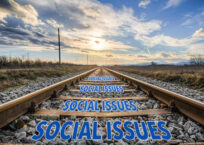
Earlier this week, we sent you an article by Laurie Higgins regarding the controversial statement by Governor Mitch Daniel (R-IN) to the Weekly Standard that “‘the next president, whoever he is, would have to call a truce on the so-called social issues. We’re going to just have to agree to get along for a little while, until the economic issues are resolved.” Laurie did a fantastic job pointing out the naivete and ignorance of such a proposal, and that our “progressive” friends on the radical Left will not observe such a truce. (See Weekly Standard article HERE.)
Unfortunately, this is not the first time a conservative leader has made such a statement, and the sentiment that the social issues are not important is shared by too many of our fiscally conservative friends. While I don’t want to belabor the point, I think it is extremely important that we consider the fact that the social issues are inextricably woven into many of the economic issues. To ignore the social issues will only perpetuate the fiscal problems the states and nation face.
Yes, fiscal responsibility is very important now,but the social issues — and the morality and personal responsibility that are at the center of the debate on social issues — play a significant role in out-of-control government spending and intrusion in our lives. Here are some examples of how social issues are costing taxpayers and contributing to the fiscal problems we now face:
Abortion:
Taxpayers are directly subsidizing the abortion industry. Abortion- providers such as Planned Parenthood continue to receive millions of tax dollars every year under Title X, which subsidizes their overhead for promoting abortion, giving them the ability to divert more and more resources toward the killing of the unborn.
A new Government Accountability Office (GAO) report reveals that over the past eight years, nearly $1 billion has been given to “family planning organizations” (read abortion providers). Planned Parenthood Federation of America received $657.1 million in taxpayer dollars from Fiscal Year 2002 to Fiscal Year 2009. The largest source of these funds ($342.1 million) was the Title X family planning program.
From the 105th through the 107th Congress, Planned Parenthood abortion services generated a net profit of $300 million. All the while, it cut back on non-abortion-related programs like adoption, breast cancer screening and infertility treatment.
Yet taxpayer funds doubled to so-called “family planning” programs, of which Planned Parenthood is a major beneficiary.
And here in Illinois, despite a ban on taxpayer- funded abortions, hundreds of Medicaid abortions are done every year. (Read more HERE.)
Then there is the issue of embryonic stem cell research that Illinois taxpayers fund — experimentation done on the tiniest of humans, resulting in their deaths. (Read more HERE.)
Homosexuality:
Just this past Sunday, Illinois Treasurer Alexi Giannoulias (D) signed an executive order to extend family and medical leave benefits to domestic partners. That is in addition to the taxpayer-funded health care benefits that the state of Illinois already gives to homosexual state employees and their partners, which was enacted unilaterally by then Governor Rod Blagojevich (D) in 2006. These benefits include medical, pharmacy, dental and vision. Taxpayers are footing the bill for this.
And there’s the $10 million of state tax money for the construction of the “Center on Halsted” which opened in 2004. The Center, located in the heart of Chicago’s affluent homosexual, bisexual, and “transgender” community, is used to push for “gay marriage” in Illinois and other homosexual lobby goals. According to Americans for Truth, the Center on Halsted has been the host of incredibly perverse sadomasochistic events. There are other similar “gay” centers in San Diego and other cities.
Lest you think that was a one time expenditure, this year taxpayers are giving $475,000 to the Center on Halsted to provide programs for homosexual and transgender seniors.
Gambling:
The state of Illinois now has 9 casinos operating, with a 10th being built in Des Plaines. Add to this the fact that Illinois is poised to have mini-casinos in every neighborhood thanks to a new law signed last summer by Governor Patrick Quinn (D) which allows any establishment serving liquor to have up to five video slot machines. (Thankfully some counties and municipalities have opted out of this predatory mugging of its citizens.)
In his book, former senior economic adviser to President Ronald Reagan, Earl L. Grinols, points out that the social costs of gambling, such as increased crime, lost work time, bankruptcies and financial hardships faced by the families of gambling addicts, have reached epidemic proportions, costing the economy as much as $54 billion annually (See “Gambling in America: Costs and Benefits,” by Earl L. Grinols.)
Casino gambling causes up to $289 in social costs for every $46 of economic benefit, according to Grinols. “In 2003 dollars, the cost to society of an additional pathological gambler is $10,330, based on studies performed in the mid-1990s, whereas the cost to society of an additional problem gambler is $2,945,” he wrote. “Accounting for the cost of raising tax dollars to cover some of these costs raises the totals to $11,304 and $3,222, respectively.”
University of Illinois Professor John Kindt has studied this issue exhaustively, and says that “every video [slot] gambling machine takes $60,000 out of the consumer economy.” Kindt asserts that “for every dollar of revenue generated by gambling, taxpayers must pay at least $3 in increased criminal justice costs, social welfare expenses, high regulatory costs, and increased infrastructure expenditures “
Legalized gambling in Illinois and across this nation is contributing to our fiscal problems. Kindt argues that “gambling is a catalyst for economic downturn.”
Pornography:
I do not need to tell you how pornography and obscenity has saturated the culture in recent decades. It is almost impossible to avoid being visually assaulted by pornography’s sinister message. Billboards, magazine covers, mall displays, television, the Internet and even the lyrics of popular music proclaim and glamorize elicit sex.
What is the link between pornography and our tax dollars? Pornography contributes greatly to the high number of sex crimes we see today. Dr. Mary Anne Layden specializes in the treatment of victims and perpetrators of sexual violence and sexual addiction. She has testified before the U.S. Congress on five occasions on the topic of sexual violence, the sexual exploitation industry and the media. A few years ago, she made this telling statement:
I began my work as a psychotherapist working with individuals who had been raped, who had experienced incest and sexual violence of all sorts, but I came to realize that after 10 years of working with these individuals, that there were certain things that were clear to me. One is that in the first 10 years I noted – now, I’m not a fast learner, but I noted that there was not one case of sexual violence that didn’t involve pornography. Now, you don’t have to be a rocket scientist to say something is going on here, because there was no other common factor in all the cases that I was treating. This one stands out. [Emphasis added.]
Her expertise and experience seem to back up the AP’s analysis:
Experts say certain trends emerge among the cases of children charged with sex crimes against other children….42 percent have been exposed to hardcore pornography, the Office of Juvenile Justice and Delinquency Prevention, an arm of the U.S. Department of Justice, said in a 2001 report.
There is a growing body of research which suggests that the habitual use of pornography — especially Internet pornography — can damage people of all ages and both sexes, negatively impacting their relationships, productivity, happiness and their ability to function in society. These are among the social costs of pornography, according to The Witherspoon Institute at Princeton, New Jersey.
There is a well-documented link between child pornography and child sexual abuse. A study done by psychologists at the Federal Bureau of Prisons found in confidential studies with convicted child pornographers — while only 26 percent were convicted of molesting children — 85 percent admitted abusing at least one child.
Millions upon millions of tax dollars are spent every year on law enforcement and in criminal justice fighting sex crimes surrounding pornography.
There are other intangible consequences of not dealing with social issues: fatherless children, the explosion of STDs, child abuse and abandonment, high school dropouts, drug and alcohol addictions, increase of crime, gang problems and many others. All of these consequences contribute to the breakdown of the family and will result in a growing demand for bigger government and the nanny state. And someone has to fund a bigger government: you, the taxpayer.
In tackling the severe financial issues that we currently face, we cannot afford to lose sight of what’s important. Social issues matter. Morality and personal responsibility matter. Faith and family matter.
John Adams said,
“We have no government armed in power capable of contending with human passions unbridled by morality and religion. Our Constitution was made only for a religious and moral people. It is wholly inadequate for the government of any other.”
Charles Carroll, signer of the Declaration and member of Continental Congress:
“Without morals a republic cannot subsist any length of time; they therefore who are decrying the Christian religion, whose morality is so sublime and pure, which insures to the good eternal happiness, are undermining the solid foundation of morals, the best security for the duration of free governments.”
Robert Winthorp, an early Speaker of the House of Representatives:
“Men, in a word, must necessarily be controlled either by a power within them or a power without them. Either by the Word of God or the strong arm of man, either by the Bible or the bayonet.”
In the absence of strong families and vibrant faith, the role of government must expand. If self-control and personal responsibility are not taught and fostered by the family and exhorted by the church — the government will necessarily become coercive. This is why we need to stand for good public policy — for both fiscal and social issues.
The breakdown of the family — no-fault divorce, the redefinition of marriage, the utter disregard of human life in abortion and euthanasia, the legalization of gambling to increase state revenue, the widespread approval of pornography and obscenity — all contribute to the breakdown of the family, the marginalization of faith and the growth of government.
If fiscal conservatives really want to see a return to limited government, they simply cannot afford to set aside the social issues.
































